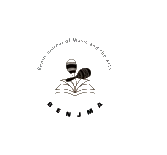A persistent issue in Nigerian formal music education is its European dominated contents and pedagogical reliance. The consequence of this is that music teaching has been less-culturally and socially relevant. In reaction to this phenomenon, researches in indigenous musical forms have been advocated as means to formulate music education contents with cultural and social relevance. This study, therefore, examines ìbejì festival music for the purpose of adopting and deploying the cultural values therein as learning material in schools, especially in southwestern Nigeria. With the use of non-participant observation and in-depth interviews, three aged women of above seventy years, who have given birth to twin-children and are vast in ìbejì music in Ò̩yọ̀ , as well as two of their family-heads, were engaged as informants. The data collected from the field were subjected to qualitative analyses. Findings show that the music, which is mostly oral, constituting recitative poetry of twin’s panegyrics and song renditions, is embedded with some Yorùbá cultural identifiers such as food and some animal metaphors associated with twin-children – these can be veritable learning materials in schools. The music possesses some peculiar traditional music elements such as rhythmic complexity, short melodic phrasing of pentatonic and hexatonic modes, as well as responsorial singing format. It is, thus, submitted that the study of ìbejì music, like other indigenous socio-cultural practices, is valuable not only as teaching contents in schools, but also as a way of (re)enacting, instilling and sustaining indigenous socio-cultural practices in the contemporary time and beyond. Such indigenously based studies should be encouraged for relevant and effective music education in Nigeria.
Page Range
14-22
Year of Publication
Month of Publication
Volume
